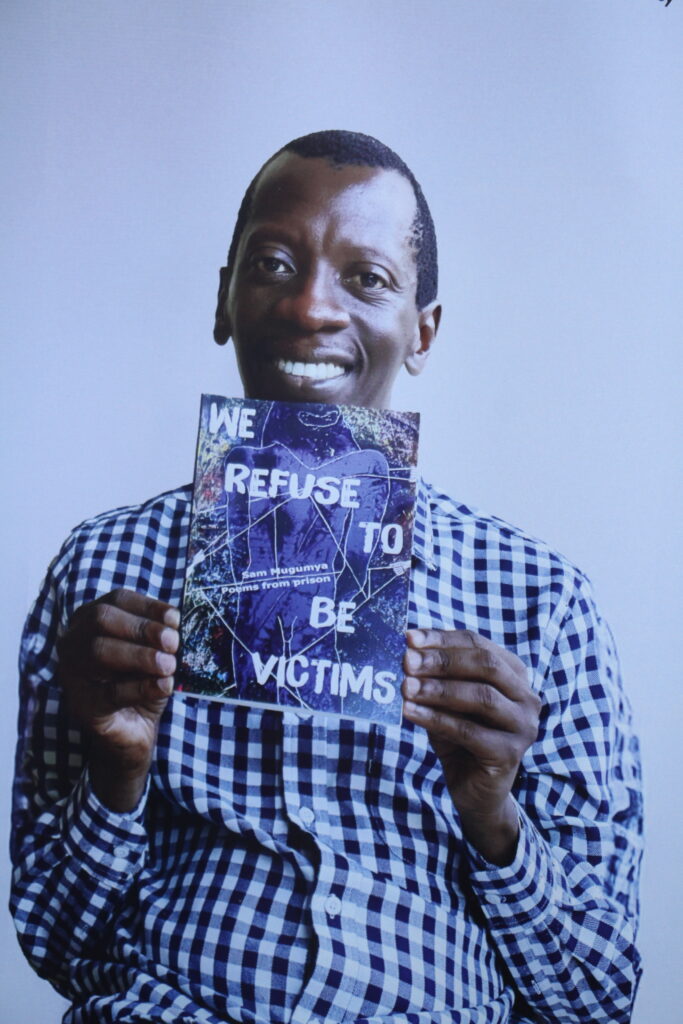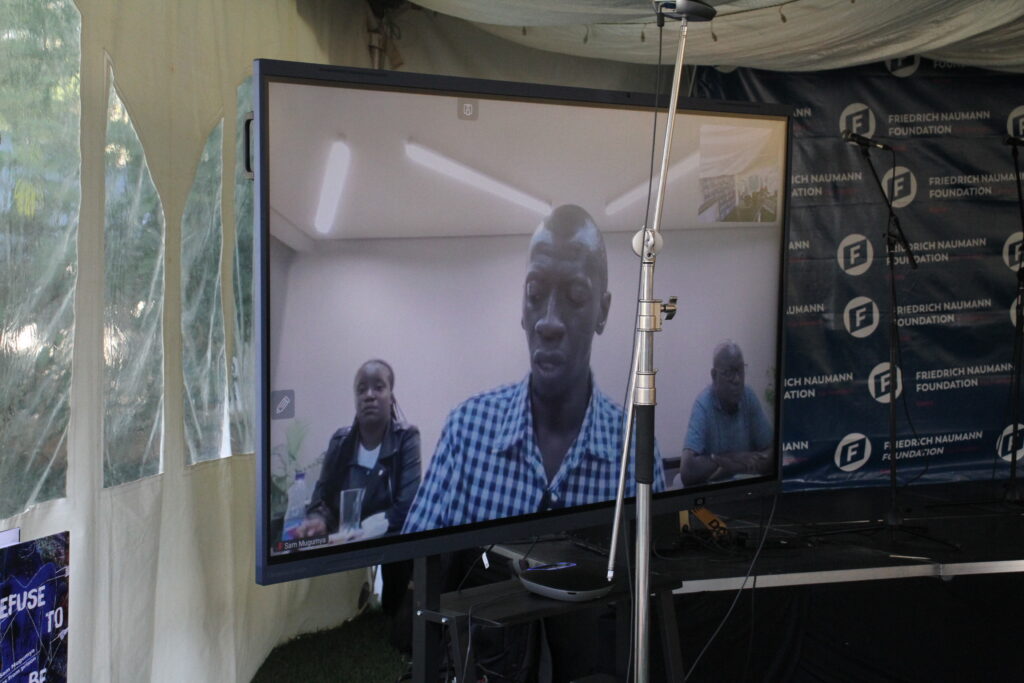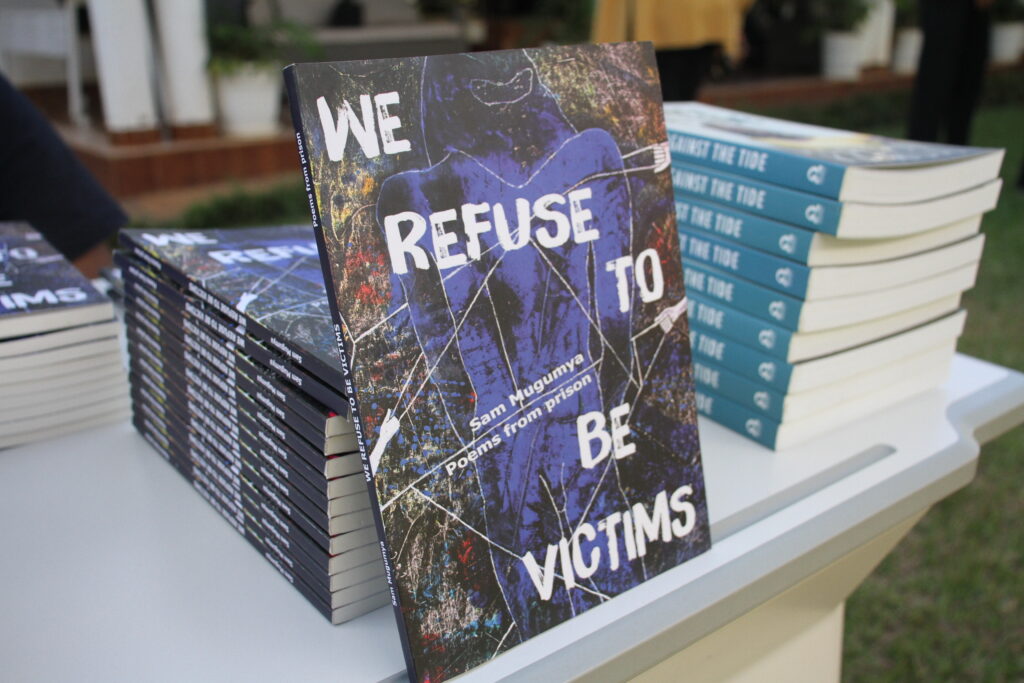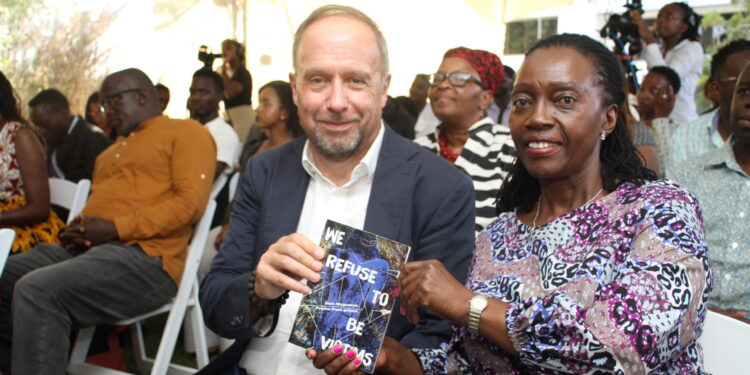Nairobi, Kenya – The Friedrich Naumann Foundation for Freedom (FNF) Kenya has hosted a special edition of the Freedom Café to launch “We Refuse to Be Victims”, a poetry collection by renowned Ugandan poet and activist Sam Mugumya.
The event, held at the foundation’s Nairobi offices, underscored the power of art as a tool for resistance, political expression, and democracy.
Mugumya’s collection, written during his eight-year imprisonment in the Democratic Republic of Congo’s Prison Militaire de Ndolo, is a gripping testament to survival under political repression. His 82 poems explore themes of injustice, endurance, and the unyielding pursuit of freedom.
A Legacy of Resistance Through Poetry
Martha Karua, leader of the People’s Liberation Party, delivered the keynote address, hailing Mugumya’s poetry as a continuation of Africa’s long tradition of using art to resist oppression.
“This is not just a book launch—it is a celebration of a legacy. Mugumya’s words will resonate globally, wherever people fight for dignity and freedom,” Karua declared.

She likened his poetry to freedom songs and oral traditions that have shaped Africa’s history, emphasizing that his verses, written in captivity, symbolize resilience and defiance. Mugumya, joining remotely from an undisclosed location for security reasons, described his writing as an act of defiance against oppressive regimes.
“These poems were conceived in the bowels of hell. It is illegal to write in prison. My journey has been a journey of speaking truth to power, no matter the cost!” he said.
Recalling his time in prison, Mugumya revealed how he secretly wrote despite constant threats. “I wrote in the depths of suffering, but I knew that even if my body was confined, my words would one day be free. This collection exists because I refused to be silenced.”
Art as a Tool for Democracy
The event reinforced how art has historically been at the forefront of movements for justice and democracy. Stefan Scott, FNF Project Director, highlighted the unique role of creatives in shaping public discourse.

“Artists—whether authors, musicians, or illustrators—are the real liberal minds in society. They sense social change earlier than most and articulate human struggles in ways that spark action.”
Scott praised Mugumya’s poetry for transforming personal suffering into a powerful call for freedom. “Sam has taken his experiences of violence and oppression and turned them into a voice for the voiceless. His poetry forces us to confront the realities of repression and the urgency of resistance.”
A Call to Action Against Regional Repression
The event took place against a backdrop of increasing state repression across East Africa, including abductions, crackdowns on activists, and shrinking democratic space. Karua cited recent examples, such as the violent arrest of 36 Forum for Democratic Change (FDC) members in Kisumu in 2024, the abduction of Dr. Kizza Besigye’s aide, Hajj Obeid Lutale and flawed Kenyan policies, such as the Social Health Insurance Fund (SHIF) and revised education funding models.
Karua stressed the need for regional solidarity in the fight for democracy. “The struggle for liberation is no longer confined to one country. It is within our neighbourhoods, within the Jumuiya, within our continent. Oppression anywhere fuels suffering everywhere.”

She called for collective resistance, referencing Kenya’s Gen Z protests as an example of continued defiance against injustice. “Let us not lose momentum. Liberation must be grounded in shared values, and Kenya’s Constitution—especially Article 10—remains our guiding principle.”
An Evening of Artistic Expression
The Freedom Café brought together over 100 writers, poets, artists, and activists, celebrating artistic resistance. Highlights included a live poetry reading by celebrated actor Raymond Ofula, performances by local poets and artists and discussions on democracy, free speech, and activism.
Through Mugumya’s words and the voices of fellow artists, the event reinforced the power of literature and art in resisting oppression and shaping the future of democracy in Africa.









